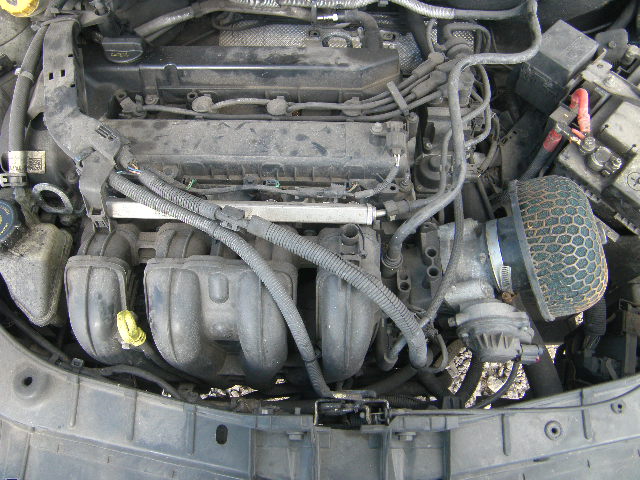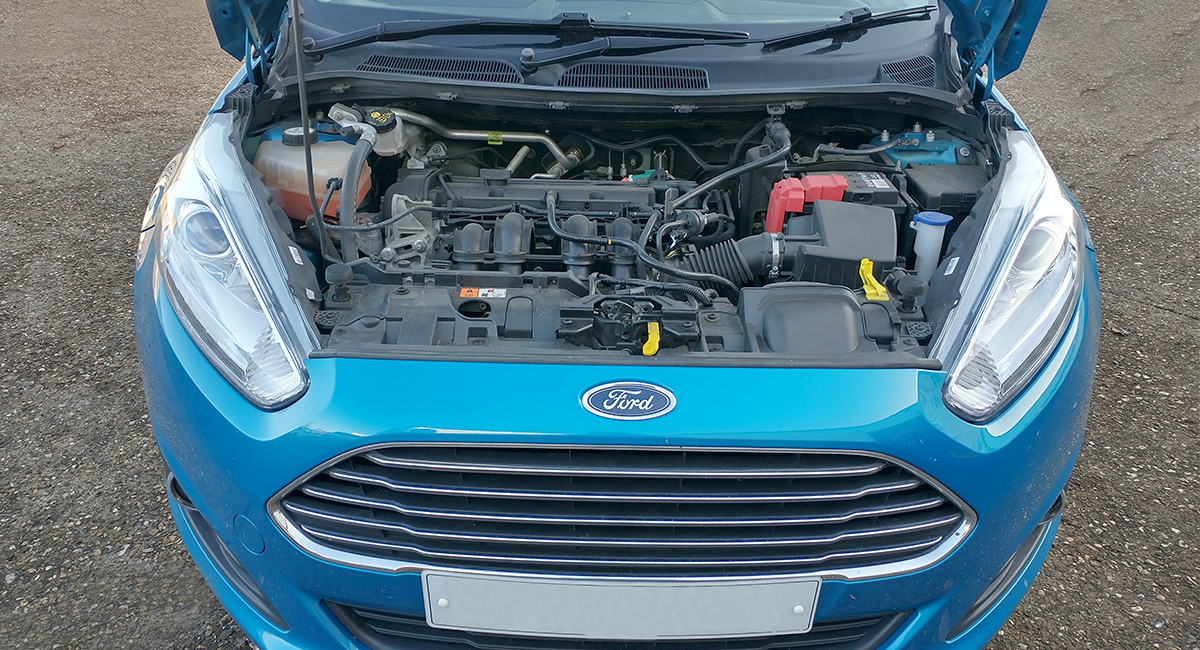Get the Most Out of Your Ford Fiesta Engine with Proper Care
Get the Most Out of Your Ford Fiesta Engine with Proper Care
Blog Article
The Future of Engines: Technologies Driving Lasting Power Solutions
As the automotive market navigates the vital shift towards sustainability, the future of engines is significantly defined by groundbreaking innovations. Electric engine improvements, together with promising developments in hydrogen fuel cells and biofuels, are improving the landscape of power solutions. The introduction of crossbreed systems even more complicates this evolution, presenting both opportunities and difficulties to minimize emissions properly. Coupled with the combination of artificial intelligence in engine style, these technical strides raise vital concerns about their lasting practicality and effect on conventional standards. What might this mean for the market and customers alike?
Electric Engine Advancement
The evolution of electric engine growths symbolizes an essential change in the auto and aerospace markets, driven by the immediate demand for lasting options to nonrenewable fuel sources. This shift is characterized by significant innovations in battery innovation, power electronic devices, and electrical motor style, which collectively enhance the efficiency and efficiency of electrical engines.
Recent developments have actually brought about the creation of lighter, much more energy-dense batteries, such as lithium-silicon and solid-state batteries, which assure longer varieties and shorter billing times. In addition, renovations in electrical motor performance, such as making use of long-term magnets and progressed cooling down systems, make it possible for electrical engines to operate properly under varying problems. These improvements not only improve car efficiency but additionally add to a decrease in general energy consumption.
Furthermore, the combination of innovative software algorithms has enhanced energy management in electrical vehicles, permitting for regenerative stopping and predictive charging methods. As manufacturers increasingly accept electrical propulsion, the aerospace and automobile sectors are experiencing a standard change in the direction of greener technologies. This evolution not just satisfies governing needs but also lines up with consumer preferences for eco pleasant transport solutions, solidifying electric engines as a foundation of future sustainable mobility.
Developments in Biofuels
As the vehicle and aerospace industries significantly prioritize sustainable energy resources, improvements in biofuels arise as a complementary service to electrical engines. Biofuels, stemmed from organic materials such as crops, waste, and algae, present an ingenious opportunity for reducing greenhouse gas discharges and dependence on fossil fuels.
Current research has concentrated on improving the efficiency and sustainability of biofuel production. Second-generation biofuels use non-food feedstocks, minimizing competitors with food supply and lowering ecological impact. Additionally, innovations in synthetic biology have actually enabled the engineering of microbes to generate biofuels better, resulting in greater returns and reduced manufacturing prices.
Additionally, the advancement of drop-in biofuels permits seamless integration right into existing framework, enabling a smoother change for markets generally dependent on nonrenewable fuel sources. ford fiesta engine. These fuels can be used in present engines without modifications, promoting their fostering across different industries
Investments in biofuel modern technology, together with encouraging plans, are vital to drive technology and scalability. As the international neighborhood looks for to deal with environment modification, biofuels offer a pragmatic, prompt option that lines up with the overarching objective of sustainability in transportation and aviation.
Hydrogen Fuel Cell Innovation
An expanding variety of researchers and business are exploring hydrogen gas cell modern technology as a feasible choice to conventional source of power in transportation and energy systems. This click for info technology converts chemical power from hydrogen into electrical energy via an electrochemical reaction, with water as the only by-product, making it an eco-friendly option.
The core of hydrogen fuel cells is the fuel cell stack, where hydrogen particles are split into protons and electrons. The flow of electrons generates power, while protons relocate via a membrane to integrate with oxygen from the air, creating water. This procedure results in high performance and low discharges, positioning hydrogen fuel cells as an important gamer in the transition to sustainable power.
Significant developments have been made in enhancing the durability and effectiveness of fuel cells, along with decreasing costs via cutting-edge production strategies. The growth of hydrogen production techniques, such as electrolysis powered look these up by renewable energy sources, enhances the sustainability of the overall system. As infrastructure for hydrogen refueling expands and production approaches end up being a lot more efficient, hydrogen gas cell technology holds terrific assurance for decarbonizing numerous markets, including heavy-duty transport and stationary power generation.
Hybrid Equipments and Their Influence
Hybrid systems represent a substantial evolution in lasting engine technology, combining conventional inner burning engines with electrical propulsion to optimize power effectiveness and decrease exhausts (ford fiesta engine). This double strategy permits automobiles to use both source of power, enabling greater versatility in energy usage and decreasing reliance on fossil gas

Along with environmental advantages, crossbreed systems use customers a viable change towards totally electric cars. They reduce variety anxiety by incorporating the convenience of fuel with the benefits of electrical propulsion, making them an attractive alternative for a broader target market. As makers spend in hybrid technology, the development of advanced battery systems and light-weight products remains to boost performance. Generally, hybrid systems represent a critical action towards achieving lasting transportation and dealing with the immediate demand for environmentally friendly power options.
The Role of AI in Engine Design
Leveraging innovative formulas and artificial intelligence techniques, the automotive market is significantly incorporating man-made intelligence (AI) into engine design processes. AI improves the performance and effectiveness of style by examining large datasets to identify optimum configurations and efficiency criteria. This ability enables engineers to mimic different operating problems and predict engine habits under multiple circumstances, dramatically lowering the moment and cost connected with typical prototyping techniques.
Moreover, AI assists in the growth of sophisticated products and burning processes tailored for sustainability. By optimizing fuel efficiency and lessening exhausts, AI-driven designs straighten with worldwide initiatives aimed at lowering the carbon impact of automobile engines. Artificial intelligence formulas can likewise anticipate maintenance demands, causing improved integrity and long life of engine elements.
Furthermore, AI is instrumental in the assimilation of electrification innovations, such as crossbreed systems, where it can maximize battery management and energy recuperation procedures. As the sector relocates review towards more sustainable power options, the duty of AI in engine layout becomes increasingly vital, driving development and improving the performance of future engines. Inevitably, the cooperation between AI and engine layout proclaims a new age of smarter, cleaner, and more reliable automotive modern technologies.

Final Thought
In conclusion, the future of engines is being formed by a convergence of innovative innovations that focus on sustainability. Electric engine advancements, biofuel advancements, hydrogen fuel cells, and hybrid systems jointly contribute to a significant reduction in discharges and ecological influence.
Electric engine innovations, along with promising developments in hydrogen fuel cells and biofuels, are reshaping the landscape of power options. In addition, improvements in electric motor performance, such as the use of irreversible magnets and advanced cooling down systems, enable electrical engines to run successfully under varying problems. By enhancing gas efficiency and lessening exhausts, AI-driven layouts line up with international campaigns intended at reducing the carbon footprint of automobile engines. As the sector relocates towards more lasting power services, the role of AI in engine design comes to be progressively important, driving innovation and improving the efficiency of future engines. Electric engine innovations, biofuel advancements, hydrogen gas cells, and crossbreed systems jointly contribute to a substantial reduction in emissions and ecological effect.
Report this page